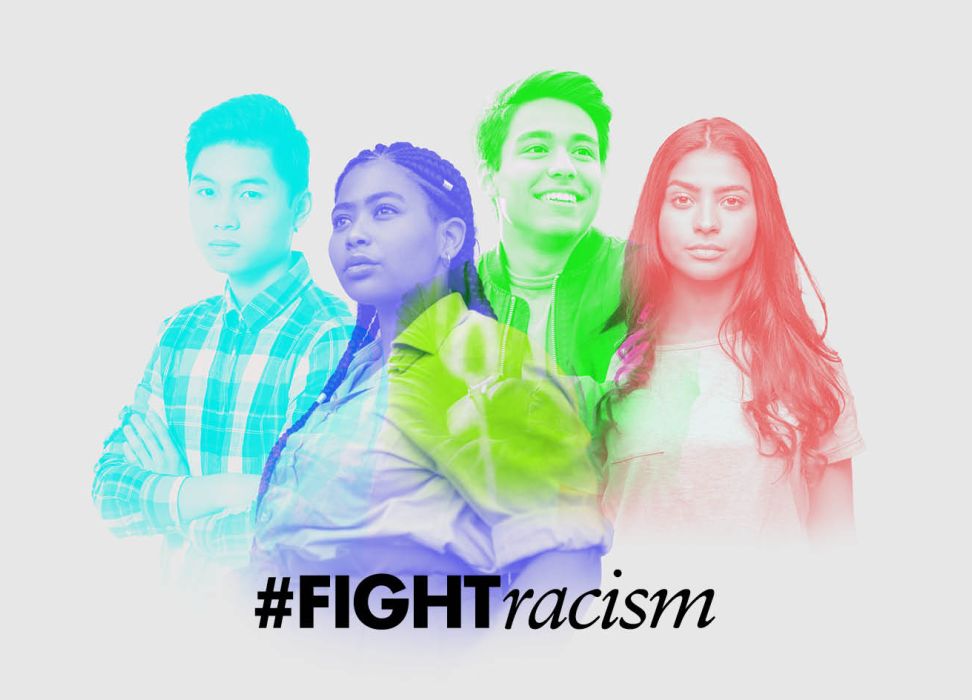States
Students Contribute Their Individual Experiences To The Anti-Racism Movement.

Anti-Racism Movement: Education To Combat Racism And Cultural Divides
Despite ethnic variations, 2023 Community Scholars for Black Lives battle systematic oppression. Gbemi Abon’s insightful study of Black and African cultures emphasizes the need to understand and love many cultures to overcome prejudice. Her work shows how education may break racial stereotypes by fostering cultural awareness and tolerance.
Rakaihya Thomas’s maternal health initiatives expose inequalities for Black women. She motivates STEM students to address the relationship between racial bias and healthcare outcomes. Thomas teaches and fights healthcare racial inequities for inclusion and fairness.
Elul Nedi’s promotion of Black excellence career paths emphasizes defying racial and achievement prejudices. Nedi promotes professional racial equality by encouraging high school students to work numerous jobs. Her work invites Black individuals to pursue their aspirations against societal pressure, making the Black community more inclusive and equal.
Supporting Community Leadership:
Valerie Salazar’s extraordinary journey as a mother, community leader, and at-risk child advocate illustrates how strength and action can overcome systemic injustice. She provides minority kids hope in a prejudiced system by helping them access community initiatives. Salazar promotes Black voice, particularly for vulnerable teens.
Unite And Include:
The 2023 Community Scholars for Black Lives believe race issues need cooperation and inclusion. Gbemi Abon rallied people by displaying Black and African cultures’ beauty and strength. Abon’s study suggests that open communication and collaboration may overcome racial inequalities and create a more unified community.
Elul Nedi’s diverse professional path and Rakaihya Thomas’s maternal health promote black togetherness. Thomas and Nedi urge Black community building to help and promote. These concepts show how unity may battle prejudice and make society more inclusive.
Resistance To Racism And Cultural Unity:
2023 Community Scholars for Black Lives advocate anti-racism and cultural harmony. Gbemi Abon’s dynamic vision of Black and African cultures stresses ethnic variety. She emphasizes unity and respect to build a more inclusive and peaceful society to end prejudice. Abon’s perseverance affirms Black culture.
Rakaihya Thomas’s diligent campaign against maternal health disparities reveals healthcare institutions must confront racism. Care for Black women’s pregnancy and delivery challenges pushes her to address healthcare disparities. To minimize racial inequities and make Black healthcare more inclusive, Thomas supports universal healthcare.
Elul Nedi’s emphasis on Black career chances shows the need to challenge cultural norms and expectations that sustain professional racial biases. Her dedication to empowerment and inclusiveness appears in her enthusiasm for helping high school students accomplish their ambitions despite societal constraints. Nedi uses the Black community’s persistence and desire to demonstrate how education and mentorship can break racial barriers and build a more diversified workforce.
Strengthening Community Anti-racism Leadership:
Valerie Salazar’s inspiring story as a community leader and advocate for at-risk youth illustrates how strength and action can overcome discrimination. Community advocacy and collaborative action are shown by her tireless efforts to connect underprivileged children with vital community services. Salazar’s efforts illustrate the need to strengthen Black voices, particularly vulnerable teens. Her work reveals how resilient and dedicated Black leaders are to transform their communities.
Read Also: Gen Z Claims That Mental Health Is Impacted By Gun Violence And Climate Change.
Working Together Unites:
The 2023 Community Scholars show unity and solidarity against racism for Black Lives. Abon’s focus on Black and African cultural heritage indicates his commitment to cultural unification. Abon’s open communication and collaboration platforms show how collective action may transcend racial divides and build a more inclusive society. Elul Nedi’s advocacy of diverse career routes and Rakaihya Thomas’s support for Black maternal health foster community unity. These academics show how unity can resist prejudice and create a more inclusive society.
Policy And Systemic Change To Combat Racism:
Valerie Salazar’s structural change and policy reform activities against prejudice. As chairman of the county Juvenile Justice Delinquency Prevention Commission, she stresses the need for equitable approaches to address the juvenile justice system’s disproportionate Black and brown presence. Salazar’s dedication to protecting at-risk teens and equipping them displays her commitment to community social justice. Salazar advocates for legislative reform to demonstrate how community-driven initiatives may lead to structural change and a fairer society.
Combating Racism Through Intergenerational Understanding:
Gbemi Abon’s intergenerational dialogue in the Black community empowers and bridges racial differences. Her efforts to bridge cultural differences and promote respect and communication across generations. Abon supports open discussion and Black diversity appreciation to promote inclusion and unity. Abon illustrates how intergenerational collaboration can strengthen neighborhoods and unite society.
Enhancing Long-term Social Change Alliances:
Social transformation and racism need allies, as seen by the 2023 Community Scholars for Black Lives. Focusing on STEM students, Rakaihya Thomas stresses allyship and awareness among future professionals. She aims to raise awareness of the healthcare system’s racial disparities and urge equitable policies and practices. Thomas emphasizes the capacity of collective action to resist systemic racism and the need for allyship and solidarity among people of all backgrounds to achieve genuine social change. Elul Nedi’s support of multiple career paths stresses solidarity and inclusion in professional arenas, encouraging individuals from all origins to succeed and shine. These experts show how allyship and solidarity may combat racism and make society more fair and inclusive.













You must be logged in to post a comment Login